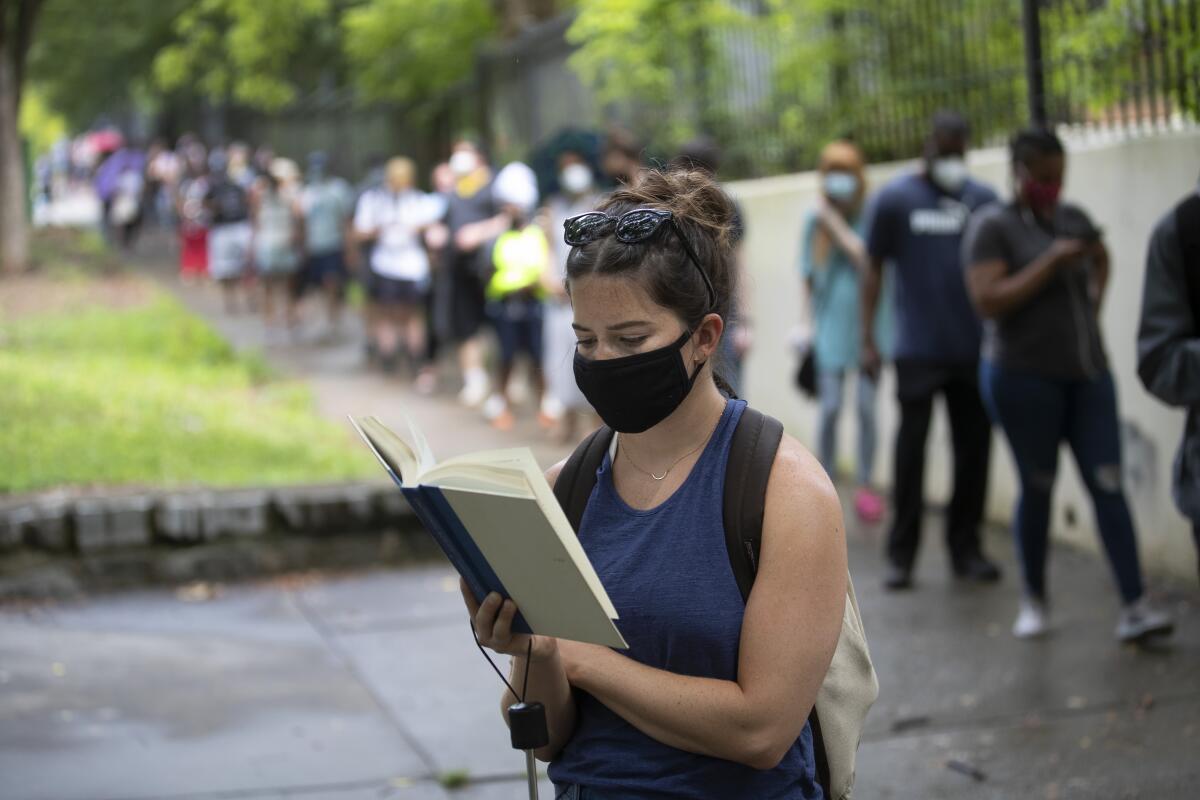Opinion: The election meltdown in Georgia is a true wake-up call, especially for Republicans in Congress

- Share via
This week Americans were given a grim vision of what might be in store when they vote in November‘s general election. On Tuesday, voters in Georgia waited for as long as five hours to cast their ballots in person, and voters who requested absentee ballots say they never received them.
The two parties in Georgia are pointing fingers at one another over the breakdown. Some also put the blame on the Supreme Court — and Chief Justice John G. Roberts Jr. — for a disastrous 2013 decision that eviscerated a key provision of the Voting Rights Act. In Shelby County vs. Holder, the court’s conservative majority struck down a formula under which states with a history of racial discrimination had to “pre-clear” changes in election procedures with the U.S. Justice Department or a federal court in Washington, D.C.
Shelby County undeniably made it harder to protect minority voting rights, but it’s not clear it’s the culprit in what one Georgia state legislator called a “complete meltdown” of the state’s election machinery.
Problems abounded: A reduced force of poll workers caused by the COVID-19 pandemic resulted in a reduction in the number of polling places, with a disproportionate effect on minority voters. New voting machines malfunctioned. Turnout was apparently swelled by outrage over the police killing of George Floyd.
Ironically, as Mark Joseph Stern reported in an article for Slate, some of the problems resulted from the state’s effort to shore up election security.
The term “wake-up call” is overused in political commentary, but it applies with force to Tuesday’s election in Georgia. And even if Republicans can’t be blamed for the breakdown, it is Republicans who have resisted measures necessary to prevent similar disruptions in November. Notably, Republicans in the U.S. Senate so far have refused to follow the Democratic-controlled House in voting to provide states with the billions of dollars needed to ensure that concerns about the coronavirus don’t lead to a depressed turnout in the general election.
It’s admittedly risky for Senate Republicans to join in a bipartisan push for expanded voting by mail and other measures to ensure participation in November. It would mean crossing President Trump, who has falsely suggested that voting by mail would lead to massive fraud, and casting aside the party’s mantra that elections shouldn’t be “federalized.”
But, just as they have belatedly awakened to an understanding of the problem of racism in policing, congressional Republicans need to recognize that voting is also a civil rights issue — and that they will be harshly judged by history if they don’t join with Democrats to ensure that what happened in Georgia is not a prophecy of chaos to come.
More to Read
A cure for the common opinion
Get thought-provoking perspectives with our weekly newsletter.
You may occasionally receive promotional content from the Los Angeles Times.











